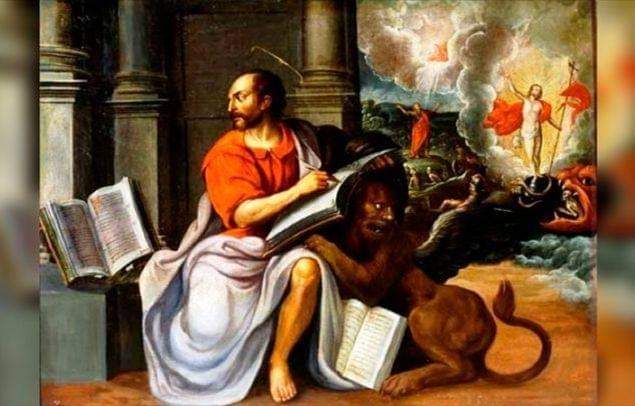We know the Gospel of St. Mark, miracles and the messianic secret (by Padre Giulio)

By Father Giulio Maria Scozzaro
Today the Ordinary Liturgical Time begins, we are accompanied by the Gospel of Mark. It is the second of the four canonical Gospels of the New Testament. It is composed of 16 chapters and like the other Gospels it narrates the ministry of Jesus, describing him in particular as the Son of God and providing numerous linguistic clarifications, designed especially for readers of the Latin language and, in general, non-Jews.
The Gospel tells the life of Jesus from his Baptism by the hand of John the Baptist to the empty tomb and the announcement of his Resurrection, even if the most important story concerns the events of the last week of his life.
It is a concise but intense narrative, depicting Jesus as a man of action, an exorcist, a healer and a miracle worker.
This short text was to arouse great interest among the Romans, worshipers of unknown divinities and looking for new gods to worship.
The Gospel of Mark does not present an abstract divinity, it focuses on the marvelous miracles of Jesus to make the Romans known not just any idol, but God himself, the Son of God incarnate in Jesus of Nazareth.
A demanding operation if one thinks that the death of Jesus was also part of the preaching, and here a legitimate question arose: can a God die on the Cross? Only the understanding of the Resurrection of Jesus could leave in the hearts of Roman readers the hope of worshiping the living and true God.
Many Romans converted to the Gospel and began to meet clandestinely in the catacombs to avoid the terrible persecutions.
The Gospel of Mark was particularly effective in Rome, and then spread everywhere. On the other hand, the Spirit of God inspired this essential account of the human history of Jesus Christ, with the detailed description of many miracles, to instill in the readers the wonder of the encounter with God the Savior.
Two important themes are found in this Gospel: the messianic secret and the difficulty of the disciples in understanding the mission of Jesus.
Even if the beginning of the Gospel of Mark clearly spells out the identity of Jesus: "Beginning of the Gospel of Jesus Christ, Son of God" (Mk 1,1), what theology calls the messianic secret is the order that he frequently gave Jesus not to reveal his identity and particular actions.
"And he sternly ordered them not to speak of him to anyone" (Mk 8,30:XNUMX).
The second important theme is the difficulty of the disciples to understand the parables and the consequences of the miracles that He performs before them. In secret he explains the meaning of the parables, he tells it to those who are ready to correspond faithfully and not to others, not willing to leave the nets of their life.
The nets that sinners build for themselves then end up imprisoning them and they no longer have a way to move freely. They are networks that at the beginning bring satisfaction or enchantment, and then connect to everything that turns into addiction.
The nets of which Jesus speaks are built with love and prayer: "Come after Me, I will make you become fishers of men".
Any spiritual help given to a sinner or a confused, disoriented person in the jungle of the world is more rewarding than any other action.
It is a strong gesture to leave the nets of sins and of one's own will to embrace the Will of God, but those who succeed in this effort feel an inner peace and a joy never experienced in the past. It is a spiritual rebirth that infects the whole person and allows him to see reality with new eyes, to always speak with spiritual words, to think with the thoughts of Jesus.
«And immediately they left the nets and they followed Him».